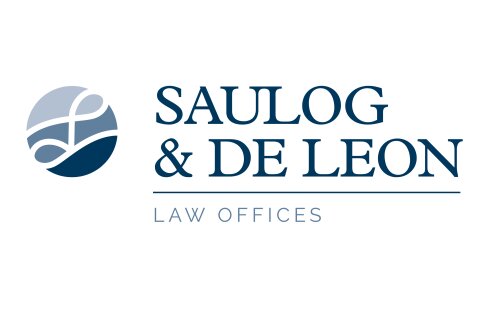Best Energy Regulatory Law Lawyers in Philippines
Share your needs with us, get contacted by law firms.
Free. Takes 2 min.
Or refine your search by selecting a city:
List of the best lawyers in Philippines
About Energy Regulatory Law in Philippines
Energy Regulatory Law in the Philippines governs the generation, transmission, distribution, and supply of electricity and other energy resources across the country. This field of law ensures proper monitoring, regulation, and development of the energy sector to promote a stable, secure, and affordable supply of energy. Key players in this sector include both private companies and government entities, all operating under a complex framework of laws and regulations. The law aims to protect consumers, encourage investment, and support the transition to cleaner and more sustainable sources of energy.
Why You May Need a Lawyer
A lawyer specializing in Energy Regulatory Law can assist individuals, businesses, and organizations in various ways. Common situations where legal assistance may be required include:
- Complying with energy sector regulations and securing necessary permits or licenses
- Negotiating and drafting energy supply, power purchase, or service contracts
- Resolving disputes with energy providers, regulatory bodies, or other stakeholders
- Participating in public hearings or consultations regarding energy projects
- Advising on renewable energy projects or investments
- Challenging unfair rates, penalties, or charges imposed by utilities or regulators
- Understanding the impact of new laws or policy changes on existing projects
- Dealing with environmental compliance issues in energy operations
- Protecting consumer rights in cases of power outages or service interruptions
Given the technical and evolving nature of Energy Regulatory Law, having effective legal counsel is critical to ensure compliance, prevent costly mistakes, and achieve favorable outcomes.
Local Laws Overview
The Philippines’ Energy Regulatory Law covers various statutes and regulations that guide the country’s energy sector. The most significant of these include:
- Republic Act No. 9136 - Electric Power Industry Reform Act of 2001 (EPIRA): This law restructured the electric power industry, promoting competition, and privatization of the power sector. It also established the Energy Regulatory Commission (ERC).
- Renewable Energy Act of 2008: Encourages the development and utilization of renewable energy resources through incentives and regulatory support.
- Energy Regulatory Commission (ERC) Rules: The ERC is the primary regulatory body that promulgates rules, approves rate increases, grants licenses, and handles consumer complaints.
- Department of Energy (DOE) Policies and Issuances: The DOE creates policies governing energy planning, conservation, and infrastructure development.
Other significant statutes may apply depending on the specific sector or type of energy project, such as laws on environmental impact assessment, consumer protection, and local government regulations.
Frequently Asked Questions
What is the Energy Regulatory Commission (ERC)?
The ERC is the government body tasked with regulating the electric power industry. It sets standards, approves rate adjustments, issues licenses, and adjudicates disputes between stakeholders.
What laws regulate renewable energy projects in the Philippines?
The Renewable Energy Act of 2008 governs the development, utilization, and promotion of renewable energy resources. The law provides fiscal and non-fiscal incentives and establishes rules for connecting renewable energy to the grid.
Do I need a permit to operate an energy generation facility?
Yes. Operators must secure permits and licenses from both the Department of Energy and the Energy Regulatory Commission. Additional environmental clearances and local government approvals may be required.
How are electricity rates determined?
Electricity rates are set based on guidelines and formulas established by the ERC. Rate petitions undergo public hearings before approval, aiming to balance investment recovery and consumer protection.
Can consumers file complaints against utilities or energy providers?
Yes. Consumers may file complaints with the ERC regarding overcharging, poor service, or other violations. The ERC will investigate and can order remedies or impose penalties.
What happens if there is a dispute between a supplier and a utility company?
Disputes can be brought before the ERC for resolution. The commission has quasi-judicial powers to hear and decide cases involving industry participants.
Are there incentives for businesses investing in renewable energy?
Yes. The Renewable Energy Act provides tax holidays, duty-free importation, and other incentives for businesses developing renewable energy projects.
What is "open access" in the electric power sector?
Open access allows eligible consumers to choose their electricity supplier, promoting competition. Implementation depends on certain thresholds set by the ERC.
Is net metering allowed for solar installations?
Yes. Net metering is available for qualified end-users, enabling those with solar panels to sell excess electricity back to the grid as provided under the Renewable Energy Act and ERC guidelines.
How can changes in energy policies affect ongoing projects?
Changes in laws or regulations may impact permits, tariff structures, or compliance requirements. Existing projects may need to adjust to new rules or seek legal remedies if affected adversely.
Additional Resources
If you need more information or guidance, the following resources and organizations related to Energy Regulatory Law in the Philippines can be helpful:
- Energy Regulatory Commission (ERC) - Main regulator for electricity sector
- Department of Energy (DOE) - Responsible for energy policy and planning
- National Renewable Energy Board - Focuses on renewable energy development
- Philippine Electricity Market Corporation (PEMC) - Administers the Wholesale Electricity Spot Market
- Local utility companies and electric cooperatives - For service and customer issues
- Environmental Management Bureau (EMB) - For environmental compliance in energy projects
- Private law firms with specialized energy law practice groups
Next Steps
If you require legal assistance in the field of Energy Regulatory Law, consider taking the following steps:
- Clarify your specific concern or legal issue related to energy regulation
- Gather pertinent documents such as contracts, permits, licenses, or correspondence with regulatory bodies
- Contact a specialized lawyer or law firm with expertise in energy regulatory matters
- Prepare a list of questions and objectives you wish to discuss with your lawyer
- Check for initial consultation services or legal aid clinics if cost is a concern
- Monitor updates from regulatory agencies for recent changes that might affect your case
Seeking timely and expert legal advice is essential for understanding your rights, fulfilling legal requirements, and protecting your interests in the complex field of Energy Regulatory Law in the Philippines.
Lawzana helps you find the best lawyers and law firms in Philippines through a curated and pre-screened list of qualified legal professionals. Our platform offers rankings and detailed profiles of attorneys and law firms, allowing you to compare based on practice areas, including Energy Regulatory Law, experience, and client feedback.
Each profile includes a description of the firm's areas of practice, client reviews, team members and partners, year of establishment, spoken languages, office locations, contact information, social media presence, and any published articles or resources. Most firms on our platform speak English and are experienced in both local and international legal matters.
Get a quote from top-rated law firms in Philippines — quickly, securely, and without unnecessary hassle.
Disclaimer:
The information provided on this page is for general informational purposes only and does not constitute legal advice. While we strive to ensure the accuracy and relevance of the content, legal information may change over time, and interpretations of the law can vary. You should always consult with a qualified legal professional for advice specific to your situation.
We disclaim all liability for actions taken or not taken based on the content of this page. If you believe any information is incorrect or outdated, please contact us, and we will review and update it where appropriate.
Browse energy regulatory law law firms by city in Philippines
Refine your search by selecting a city.














